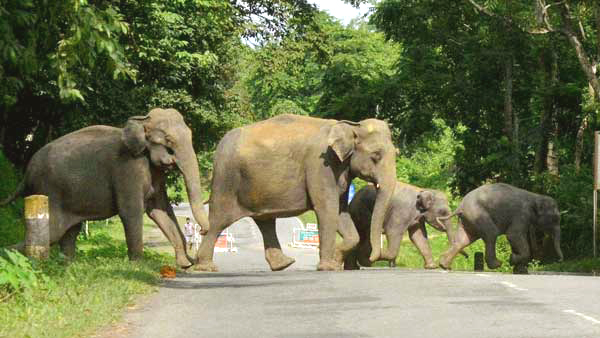Bhawanipatna: After the death of six elephants due to septicemia in Karlapat wildlife sanctuary in Kalahandi district within 14 days, the Forest department is on its toes.
At the same time, fears of septicemia spreading in nearby human settlements has become a cause of concern for locals and the healthcare authorities, a report said.
Most of the jumbo casualties were found near water bodies. Health officials say consumption of creek and stream water may trigger the spread of septicemia among people in the locality.
Now, the Health department has started organising health camps in peripheral villages. Apart from health check-ups, the officials are making people aware about not using the creek water to prevent septicemia that has reportedly claimed lives of six elephants in a short span.
Meanwhile, a team of health officials has collected samples of water from a nullah where elephants were found dead, said CDMO Pratap Kumar Behera.
“Consumption of the creek water may cause septicemia in humans. So, people are being sensitised about the possible health hazard,” he added. According to the 2018 census, the sanctuary had played host to 17 elephants.
Divisional Forest Officer (DFO) Kalahandi South Division Ashok Kumar and his team and veterinary doctors are camping in the area undertaking surveillance. The DFO has earlier confirmed, “The death of elephants is due to Hemorrhagic Septicemia (HS).”
However, the DFO said that there was no report of the death of other animals in the sanctuary and the cattle entering the forest from nearby villages.
Chief Minister Naveen Patnaik has asked the authorities to take immediate measures to stop the elephant fatalities in the sanctuary.
Notably, the sixth casualty was a female elephant, whose carcass was found near a water body, a couple of days ago. Earlier, four female pachyderms and a calf have died there since February 1.
The Chief Minister has directed the district administration of Kalahandi and the DFO to ensure vaccination of cattle in villages close to the sanctuary. All the water bodies in the sanctuary will be disinfected and water samples are being sent to laboratories for tests.
According to reports, there are at least 43 water bodies in the sanctuary of which 25 have been disinfected so far.
PNN
